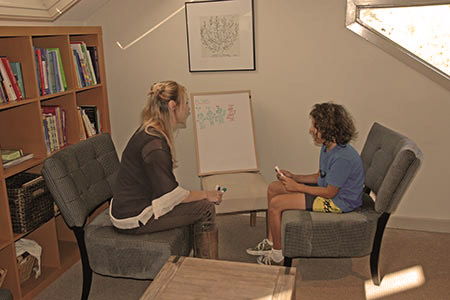Primary School Aged Children (5-12 years)
This group of children is the most diverse group that we work with. We use a developmental perspective in thinking about how to enhance your child’s social, emotional, behavioural, developmental and educational functioning.
Psychological Therapies
Specific problems in primary school aged children:
- Anxiety disorders or phobias (e.g., fear of the water, fear of the dark, fear of sleeping alone)
- Sadness, grief, trauma and loss
- Social or friendship problems
- Sleep problems
- Encopresis and Enuresis problems (e.g., bedwetting, soiling problems)
- Eating disorders (e.g., fussy eaters, food refusal and/or reluctance, healthy eating, overeating and/or obesity etc.)
- Educational and/or academic difficulties
- Learning problems
- Behaviour and/or conduct problems (e.g., tantrums, non-compliance, hyperactivity)
- Family separation
- Obsessions and habits (e.g., thumb sucking, hair pulling)
- Clinical disorders such as attention deficit hyperactivity disorder, autism spectrum disorder, intellectual disability, language disorders, other mental health problems
Assessment services for primary-school aged children include:
- Educational assessments – to help understand how your child is processing academically
- Cognitive assessments – to help understand your child’s intellectual
- Specialized clinical assessments – for disorders such as autism spectrum disorders or attention deficit hyperactivity disorder, intellectual disability, specific learning disorders, communication disorders
- Giftedness assessments – to identify if your child is intellectually talented and/or gifted
Therapy services for primary-school aged children:
- Psychological treatment programs to treat specific mental health problems (e.g., anxiety, phobias, mood disturbances, eating disorders, anger problems).
- Family centered therapy – we work with your child and their teacher to create a dynamic change for your child across all their settings.
- Play based therapies – we conduct counselling and teach new skills via a range of age appropriate activities. Children usually find this process fun and engaging.
- Social skills programs – to enhance your child’s social skills.
- Behaviour management programs to reduce problematic or unwanted behaviour (e.g., hitting, yelling, defiance, temper tantrums, biting etc.).
- Interventions to increase wanted behaviour (e.g., better sleeping behaviour, better diet, and emotional regulation skills).
- Learning enhancement programs
- School sessions/ observations are sometimes appropriate for this age group

